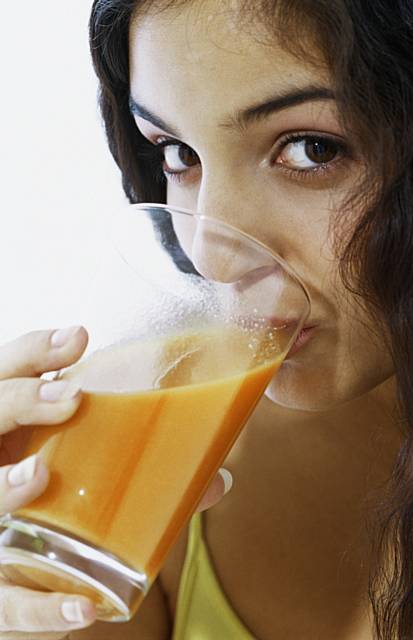Regular consumption of sugary drinks associated with type 2 diabetes
Date published: 22 July 2015

Regular consumption of sugary drinks associated with type 2 diabetes
Regular consumption of sugar sweetened drinks is positively associated with type 2 diabetes independent of obesity status, finds a study published in The BMJ this week.
Artificially sweetened drinks and fruit juice also showed a positive association with type 2 diabetes, but the quality of evidence was limited. None the less, the authors warn that neither artificially sweetened drinks nor fruit juice are suitable alternatives to sugar sweetened drinks for the prevention of type 2 diabetes.
Artificially sweetened beverages have been seen as possible alternatives to sugar sweetened beverages to reduce intake of sugars and energy, and fruit juice has been considered a healthier alternative. However, evidence was not available to clarify whether or not consumption of each of sugar sweetened beverages, artificially sweetened beverages, and fruit juice is associated with risk of diabetes after taking account of obesity status.
To address this question, an international team of researchers led by the MRC Epidemiology Unit at Cambridge University set out to assess whether or not habitual consumption of sugar sweetened drinks, artificially sweetened drinks, or fruit juice was associated with the incidence of type 2 diabetes - and to estimate the 10-year risk attributable to sugar sweetened drinks in the USA and UK.
They analysed the results of 17 observational studies. Design and quality were taken into account to minimise bias. None of these was funded by industry.
They found that habitual consumption of sugar sweetened drinks was positively associated with incidence of type 2 diabetes, independently of obesity status.
The association between artificially sweetened drinks or fruit juice and incident type 2 diabetes was less evident. Yet, the researchers found little evidence for benefits of these beverages, and therefore concluded these drinks are unlikely to be healthy alternatives to sugar sweetened drinks for preventing type 2 diabetes.
They point out that the studies analysed were observational, so no definitive conclusions can be drawn about cause and effect.
However, assuming a causal association, they estimate that two million new-onset type 2 diabetes events in the USA and 80,000 in the UK from 2010 to 2020 would be related to consumption of sugar sweetened beverages.
“Although more research on cause and effect needs to be carried out, this study indicates the potential health gains that may be achieved by reducing the consumption of sugar sweetened drinks,” they conclude.
Do you have a story for us?
Let us know by emailing news@rochdaleonline.co.uk
All contact will be treated in confidence.
Most Viewed News Stories
- 1Castleton station ‘to become epicentre of huge change and growth’
- 2'Eyesore’ land in the town centre will become home to new apartment block
- 3Contractor appointed for regeneration scheme in Rochdale town centre
- 4'Thanks for making Freehold a place to feel proud to live in again' - Residents react to...
- 5Rochdale Exchange Market to reopen after a decade
To contact the Rochdale Online news desk, email news@rochdaleonline.co.uk or visit our news submission page.
To get the latest news on your desktop or mobile, follow Rochdale Online on Twitter and Facebook.

